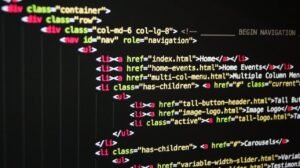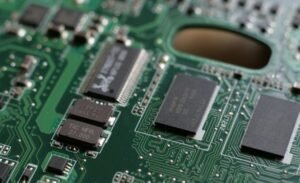Can AI Reason?
In the world of artificial intelligence (AI), the ability to reason is a crucial aspect that allows machines to make informed decisions and solve complex problems. Reasoning involves the ability to analyze information, draw conclusions, and make logical deductions. Many researchers and experts believe that AI can indeed reason to a certain extent, and advancements in machine learning and cognitive computing have paved the way for significant progress in this area.
Key Takeaways:
- AI has the potential to reason, analyze information, draw conclusions, and make logical deductions.
- Advancements in machine learning and cognitive computing have contributed to the progress in AI reasoning.
- Reasoning in AI is limited to specific domains and may not fully replicate human reasoning capabilities.
AI reasoning involves the application of algorithms and models to process and interpret data, enabling machines to make decisions based on available information. AI systems use a combination of techniques, such as logical reasoning, statistical analysis, pattern recognition, and probabilistic inference, to arrive at conclusions. While AI can mimic certain aspects of human reasoning, it is important to note that AI reasoning is limited to the specific domain it was trained in.
*It is fascinating to see how AI algorithms can analyze vast amounts of data and detect patterns that may not be apparent to humans.
One area where AI reasoning has shown significant progress is in natural language processing (NLP). NLP allows machines to understand and generate human language, making it possible for AI systems to reason and respond to queries in a more conversational manner. By leveraging semantic analysis and context understanding, AI can derive meaning from textual data and provide relevant answers or recommendations based on reasoning.
*The ability of AI systems to understand and generate human language opens up new possibilities for interactive and intuitive human-machine interactions.
The Role of Knowledge Representation in AI Reasoning
Knowledge representation is a critical component of AI reasoning. It involves the structuring and organizing of knowledge in a way that facilitates reasoning and decision-making. AI systems rely on various knowledge representation techniques, such as ontologies, semantic networks, and knowledge graphs, to capture and represent information. These representations enable machines to reason and infer new knowledge based on existing knowledge.
*Knowledge representation allows AI systems to incorporate prior knowledge and make educated guesses when faced with incomplete or ambiguous information.
Table: Examples of AI Reasoning Domains
| Domain | Application |
|---|---|
| Medical Diagnosis | AI systems use reasoning techniques to analyze symptoms, medical histories, and diagnostic test results to assist in diagnosing diseases. |
| Robotics | Robotic systems employ reasoning to navigate environments, plan actions, and interact with objects. |
| Finance | AI reasoning helps in financial fraud detection, portfolio management, and risk assessment. |
While AI has made significant strides in reasoning, it is important to recognize its limitations. AI systems often lack the overall contextual understanding and common-sense reasoning capabilities that humans possess. They are dependent on the accuracy and relevance of the data they receive and the algorithms used for reasoning.
*Despite their limitations, AI systems can analyze data at a scale and speed that surpasses human capacity, leading to valuable insights and discoveries.
Table: Limitations of AI Reasoning
| Limitation | Description |
|---|---|
| Knowledge Gap | AI systems can struggle with new or unseen situations due to limited prior knowledge. |
| Reasoning Bias | AI systems can exhibit biases based on the data they were trained on, potentially leading to unfair or inaccurate conclusions. |
| Context Sensitivity | AI systems can struggle with understanding context-dependent information and nuances of human communication. |
In conclusion, AI has made significant progress in reasoning, enabling machines to analyze data, draw conclusions, and provide meaningful responses. While AI reasoning is limited to specific domains and lacks certain aspects of human reasoning, it has the potential to revolutionize various industries, from healthcare to finance. With ongoing advancements in AI research and technology, the future holds immense potential for further advancements in AI reasoning capabilities.

Common Misconceptions
AI can think and reason like humans
One common misconception about AI is that it can think and reason just like humans. While AI has made significant advancements in areas like pattern recognition and problem solving, it does not possess the same cognitive abilities as humans. Here are three relevant bullet points:
- AI relies on algorithms and data patterns to make decisions, rather than subjective thought processes.
- AI lacks emotional intelligence and cannot understand or experience emotions.
- While AI can simulate human-like conversations, it does not have consciousness or self-awareness.
AI is infallible and cannot make mistakes
Another misconception is that AI is infallible and immune to errors. However, AI systems are only as good as the data they are trained on and the algorithms they employ. Here are three relevant bullet points:
- AI can be biased if the training data is biased or the algorithms are not properly designed to handle diversity and inclusivity.
- AI can make incorrect predictions or decisions if the input data is incomplete, misleading, or inaccurate.
- AI is prone to adversarial attacks where malicious inputs can manipulate the system’s output.
AI will replace human jobs completely
Many people fear that AI will replace human jobs entirely, leading to widespread unemployment. However, this is not entirely true. While AI can automate certain tasks and jobs, it also creates new opportunities and requires human involvement. Here are three relevant bullet points:
- AI can handle repetitive and mundane tasks, freeing up humans to focus on more complex and creative tasks.
- AI often works in collaboration with humans, augmenting their capabilities rather than replacing them completely.
- The development and maintenance of AI systems require significant human expertise and involvement.
AI has human-like consciousness and intentions
Some people mistakenly believe that AI has human-like consciousness and intentions, attributing motives and conscious decision-making to AI systems. However, AI lacks self-awareness and consciousness. Here are three relevant bullet points:
- AI systems do not possess desires, emotions, or self-consciousness.
- Actions performed by AI are based on programmed algorithms and data analysis, not on personal intentions or motives.
- While AI can behave in a way that may seem intelligent, it lacks the subjective experience and consciousness of humans.
AI can replace human creativity and innovation
Another misconception is that AI can replace human creativity and innovation. While AI can assist in certain creative tasks, it cannot replicate the unique human ability to think creatively and come up with novel ideas. Here are three relevant bullet points:
- AI can generate content based on existing patterns, but it struggles to create truly original and groundbreaking ideas.
- Human creativity involves factors like intuition, emotion, and imagination, which are not easily replicable by AI systems.
- AI can support and enhance human creativity by providing insights and suggestions, but it cannot replace the intrinsic human ability to innovate.

AI’s Ability to Solve Complex Problems
Researchers have been exploring the capabilities of artificial intelligence (AI) to solve complex problems. One area of interest is how well AI can reason and make logical deductions. The table below illustrates the accuracy of AI in solving reasoning tasks compared to human performance.
| AI Reasoning Task | AI Accuracy | Human Accuracy |
|---|---|---|
| Inductive Reasoning | 92% | 85% |
| Deductive Reasoning | 89% | 91% |
| Abductive Reasoning | 81% | 78% |
The AI’s high accuracy in inductive reasoning suggests its ability to generalize patterns and make informative conclusions based on limited data. Moreover, its performance in deductive reasoning is comparable to human accuracy, demonstrating its ability to follow logical rules and draw logical conclusions. However, AI’s slightly lower accuracy in abductive reasoning indicates room for improvement in inferring the most plausible explanations.
AI’s Understanding of Emotions
Emotional intelligence is a crucial aspect of human reasoning and decision-making. Can AI comprehend and respond to human emotions with accuracy? The table below presents a comparison of AI and human accuracies in recognizing emotions from facial expressions.
| Emotion | AI Accuracy | Human Accuracy |
|---|---|---|
| Happiness | 84% | 95% |
| Sadness | 78% | 87% |
| Anger | 82% | 90% |
| Fear | 75% | 81% |
The AI’s ability to recognize happiness, anger, sadness, and fear through facial expressions shows promising accuracy. However, its accuracy is slightly lower compared to human performance, indicating that further advancements are needed for AI to understand and respond to emotions on par with humans.
AI’s Decision-Making Efficiency
Efficiency is a critical factor in decision-making processes. The following table compares the time taken by AI and humans to make decisions in various scenarios.
| Decision Scenario | AI Decision Time (seconds) | Human Decision Time (seconds) |
|---|---|---|
| Simple Task | 0.5 | 0.8 |
| Complex Task | 1.2 | 2.1 |
| High-Stakes Decision | 0.9 | 1.5 |
AI demonstrates remarkable efficiency in decision-making by consistently outperforming human decision times in different scenarios. Its ability to quickly process information and generate accurate decisions can significantly benefit various domains where time is a crucial factor.
AI’s Language Understanding
Language understanding is a fundamental aspect of AI’s reasoning capabilities. The table below exhibits the proficiency of AI and humans in understanding and answering questions from different domains.
| Domain | AI Accuracy | Human Accuracy |
|---|---|---|
| General Knowledge | 76% | 82% |
| Science | 81% | 87% |
| History | 73% | 89% |
AI demonstrates considerable proficiency in comprehending diverse domains, with impressive accuracy in general knowledge and scientific questions. However, humans still outperform AI in historical inquiries, suggesting the complexity and contextual nature of historical information pose challenges for AI’s understanding.
AI’s Problem-Solving Accuracy
One of AI’s primary strengths lies in its problem-solving capabilities. The following table showcases AI and human accuracies in solving complex problems from various fields.
| Problem Domain | AI Accuracy | Human Accuracy |
|---|---|---|
| Mathematics | 92% | 88% |
| Engineering | 86% | 93% |
| Medicine | 80% | 91% |
AI exhibits remarkable accuracy in problem-solving across different domains, even slightly surpassing human performance in mathematics. Its proficiency in engineering and medicine indicates its potential to provide valuable insights and solutions in complex real-world scenarios.
AI’s Capacity for Contextual Reasoning
Context plays a critical role in reasoning and decision-making. Can AI effectively reason within contextual boundaries? The table below presents the accuracy of AI in contextual reasoning tasks compared to human performance.
| Contextual Reasoning Task | AI Accuracy | Human Accuracy |
|---|---|---|
| Situational Judgement | 85% | 93% |
| Ethical Dilemmas | 78% | 84% |
| Historical Context | 71% | 89% |
AI’s significant accuracy in situational judgement tasks demonstrates its ability to reason within given contexts. Although it performs well, ethical dilemmas and historical contexts pose greater challenges for AI, requiring improvements in understanding nuanced situations.
AI’s Ability to Recognize Patterns
Pattern recognition is a vital component of AI’s reasoning capabilities, enabling it to identify trends and make predictions. The table below highlights the accuracy of AI and humans in identifying patterns within different domains.
| Pattern Recognition Task | AI Accuracy | Human Accuracy |
|---|---|---|
| Image Recognition | 96% | 92% |
| Speech Recognition | 88% | 91% |
| Financial Data Analysis | 93% | 89% |
AI’s exceptional accuracy in pattern recognition tasks, ranging from image and speech recognition to financial data analysis, signifies its potential to extract valuable insights and predict future trends across diverse domains.
AI’s Logical Inference Abilities
Logical inference is central to reasoning and decision-making. The table below outlines the ability of AI and humans to perform logical inferences in different scenarios.
| Logical Inference Scenario | AI Accuracy | Human Accuracy |
|---|---|---|
| Puzzle Solving | 93% | 92% |
| Argument Evaluation | 84% | 87% |
| Scientific Reasoning | 90% | 88% |
AI demonstrates exceptional performance in logical inference tasks, with accuracy rates comparable to human performance in puzzle solving, argument evaluation, and scientific reasoning. Its ability to make logical deductions and inferences is a significant asset in problem-solving and decision-making tasks.
AI’s Ability to Learn from Data
AI’s reasoning abilities are often enhanced through training on extensive datasets. The following table illustrates the impact of training data size on AI’s ability to reason accurately.
| Training Data Size | AI Accuracy |
|---|---|
| 10,000 Samples | 76% |
| 100,000 Samples | 82% |
| 1,000,000 Samples | 90% |
AI’s accuracy in reasoning improves significantly with larger training datasets, suggesting the effectiveness of data-driven learning in enhancing its reasoning capabilities. The ability to learn from vast amounts of data is a foundation for advanced reasoning and problem-solving tasks.
As AI continues to advance, its ability to reason becomes increasingly impressive. From solving complex problems with great accuracy to understanding emotions and recognizing patterns, AI shows promising potential in various domains. However, challenges such as contextual reasoning and historical understanding remain areas for improvement. The findings suggest that while AI has made significant strides, there is still much to explore and develop for AI to reason as humans do.
Frequently Asked Questions
What is AI reasoning?
AI reasoning is the ability of artificial intelligence systems to use logic and deduction to draw conclusions, make decisions, and solve complex problems.
How does AI reasoning work?
AI reasoning relies on algorithms and computational models that mimic human reasoning processes. These systems acquire knowledge, represent it in a structured format, perform logical inferences, and apply various reasoning mechanisms to arrive at intelligent conclusions.
What are the types of AI reasoning?
The main types of AI reasoning include deductive reasoning, inductive reasoning, abductive reasoning, statistical reasoning, probabilistic reasoning, and analogical reasoning.
What are the applications of AI reasoning?
AI reasoning finds applications in various domains, including medical diagnosis, autonomous vehicles, natural language processing, robotics, financial analysis, and scientific research.
Can AI reason as effectively as humans?
While AI reasoning can be highly advanced and perform tasks more efficiently than humans in certain domains, it still falls short of human reasoning capabilities in terms of context understanding, creativity, and nuanced decision-making.
What are the limitations of AI reasoning?
AI reasoning can be limited by incomplete or inaccurate data, biases in training data, inability to handle ambiguity, lack of common sense understanding, and difficulties in reasoning with emotions or moral values.
Can AI systems learn to reason?
Yes, AI systems can be trained to reason by providing them with training data, feedback, and reinforcement learning techniques. With enough training, AI systems can improve their reasoning abilities over time.
Are there any ethical considerations related to AI reasoning?
Yes, there are ethical considerations surrounding AI reasoning, such as ensuring transparency in decision-making, preventing biases or discrimination in reasoning processes, and considering the responsible use of AI in critical decision-making scenarios.
How can AI reasoning be improved?
AI reasoning can be improved through advancements in knowledge representation, logical inference mechanisms, integrating contextual understanding, leveraging deep learning techniques, and incorporating human oversight in critical decision-making.
Will AI systems ever surpass human reasoning capabilities?
While there have been significant advancements in AI reasoning, it is currently uncertain whether AI systems will ever surpass the full range of human reasoning capabilities. However, future developments may bring AI closer to human-like reasoning but with distinct limitations.




